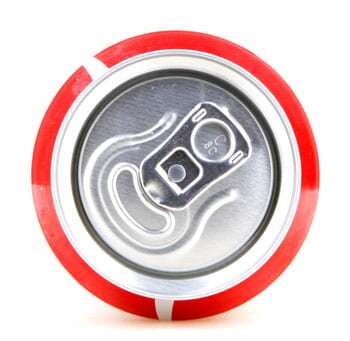Credit: 123RF.com/Rice University
Recent nationwide polls show Americans are divided about soda taxes. Overall, people tend to be more supportive of calorie-labeling and removing sugary drinks from schools, but less so for a general soda tax.
It is important to gather enough evidence to inform meaningful public policy debates, as well as ensure that the evidence clearly shows soda taxes can reduce consumption and improve health outcomes before implementing them, according to a new report from the Center for Public Finance at Rice University's Baker Institute for Public Policy.
The report by Joyce Beebe, a fellow in public finance at the Baker Institute, reviews the controversies of taxing sugary drinks; describes recent global, state and local experiences of developing and implementing soda taxes; and provides practical policy considerations.
"Multiple publications indicate sugary drinks are the largest single source of added sugars in today's diet, accounting for half of Americans' added sugar consumption," Beebe wrote. "This leads researchers to believe the association of sugary drink consumption and weight gain is stronger than for any other type of food or beverage, which provides the foundation for soda taxes."
Beebe said it is important to remember that soda is subject to sales tax at general or reduced rates in 35 states. "The soda tax debate over the last decade centers on imposing excise taxes on sugary drinks," she wrote. "Broadly speaking, excise taxes single out a particular good or activity to either generate revenue or deter consumption through increased prices."
Common excise tax examples include levies on cigarettes, alcoholic beverages, gas, lottery tickets and amusement activities. Due to the nature of such activities, supporters of excise taxes on cigarettes, alcoholic beverages and soda often call them "sin taxes." Because the ultimate goal is to improve health outcomes, recent soda taxes usually prioritize consumption reduction over revenue generation, Beebe said.
"A major challenge for soda tax proponents is to prove the effectiveness of the tax," Beebe wrote. "There are three major evidence-based issues: lack of sufficient evidence, connection and credibility."
Beebe highlights an effort spearheaded by former New York City Mayor Michael Bloomberg and former U.S. Treasury Secretary Larry Summers to frame taxes on tobacco, alcohol and sugary drinks as essential to combating noncommunicable diseases. Their ongoing initiative recognizes that tobacco has the largest and best-documented health risk, and it leads to about 8 million deaths per year globally. Next in line is alcohol, which causes 3 million deaths. Obesity and diabetes combine to cause 6 million deaths per year globally, and the consumption of sugary beverages is a contributing factor to both conditions. Bloomberg and Summers' study finds that higher tobacco and alcohol prices reduce consumption, save lives and generate tax revenue.
"However, more evidence is still needed to determine if soda taxes generate these positive outcomes," Beebe wrote. "As a result, the study concludes that tax on tobacco can do more to reduce premature deaths than any other single health policy and increasing taxes on alcohol also significantly reduces alcohol-related mortality. On the other hand, taxes on sugary drinks are described as 'prudent,' as they incentivize healthier diets and reduce noncommunicable diseases."
As the evidence is being gathered, improving food and beverage labeling information and promoting nutrition knowledge are the best courses for now, Beebe said. "Both the Organization for Economic Cooperation and Development and World Health Organization encourage promoting healthy diets by improving health literacy and empowering consumers," she wrote. The improved labeling could range from a more radical form of mandatory health impact disclosures similar to the warning labels on tobacco products, or a more moderate form like encouraging all restaurants to provide calorie information."
Soda tax 'not a panacea'
Marketing campaigns may be too slow to reverse the soaring rates of chronic diseases; however, such educational efforts are essential to change people's views of sugary beverages, Beebe said. "A thorny issue is that consumers' acceptance of a soda tax may depend on whether soda is perceived as a necessity or if it is viewed more like cigarettes, which are nonessential and harmful to one's health," she wrote.
"In addition, although it is important to correct tax-induced regressivity by recycling the revenue and using it in health promotion and community-based programs, it is important to bear in mind that the most important objective of soda tax is to change consumer behaviors," Beebe wrote. "In order to do so, the tax needs to be targeted, well designed, and high enough to generate the desired results."
Beebe concluded, "Soda tax is not a panacea. It is certainly true that a soda tax alone will not solve the multibillion-dollar obesity epidemic. In fact, no single public health intervention can solve today's obesity problem at its current scale. Fiscal policies such as soda tax remain a feasible yet controversial option for the foreseeable future."
More information: The report is available online: www.bakerinstitute.org/media/f … 0719-cpf-sodatax.pdf
Provided by Rice University























